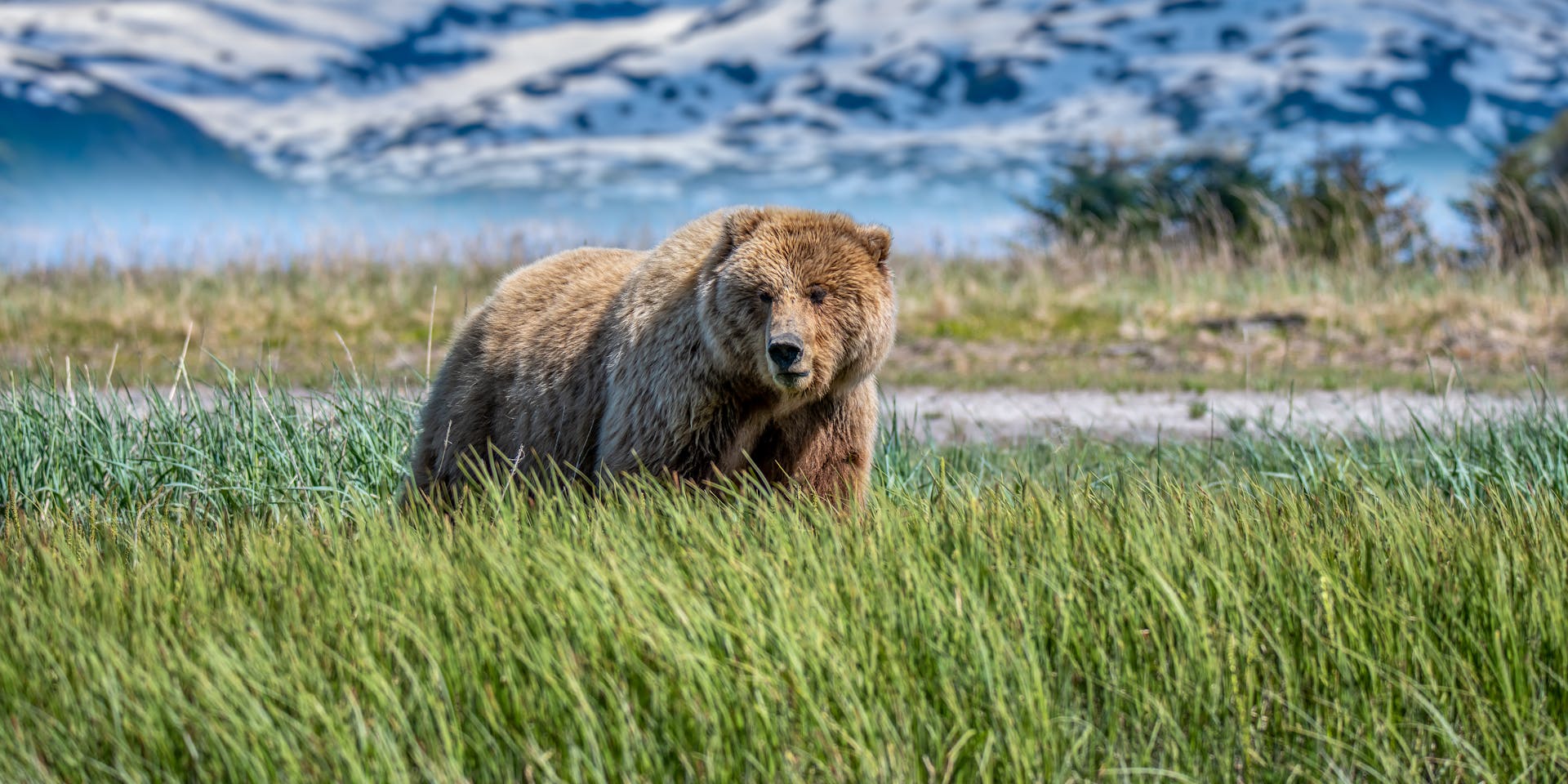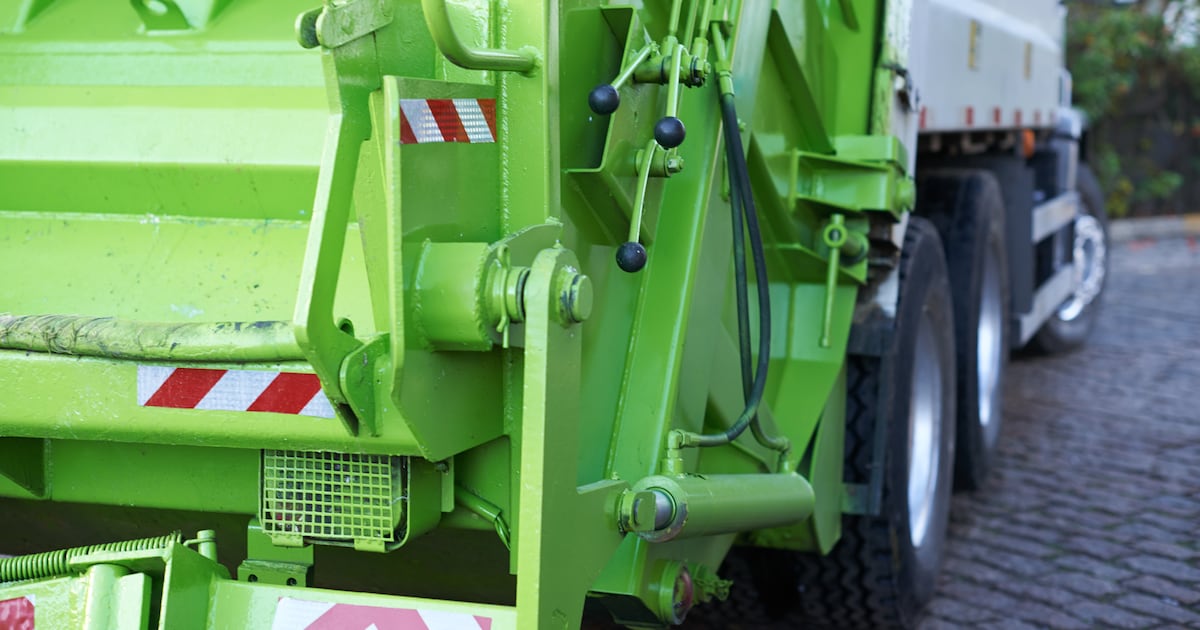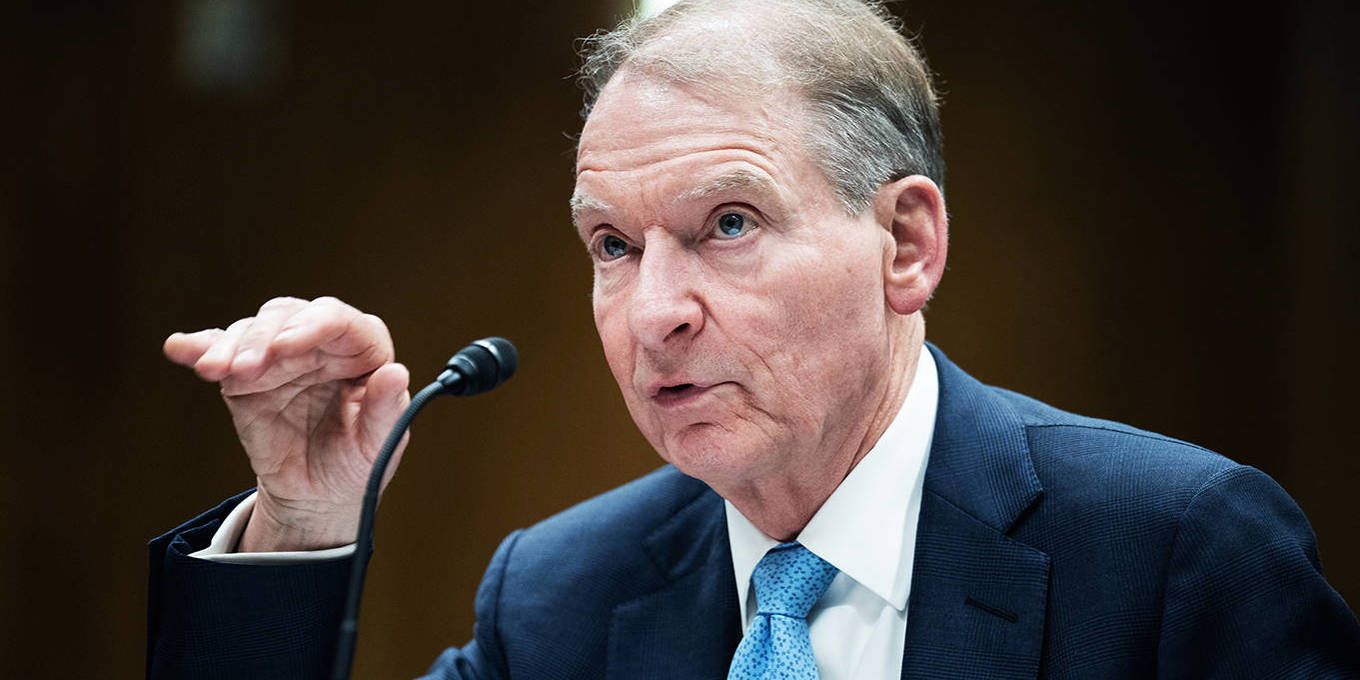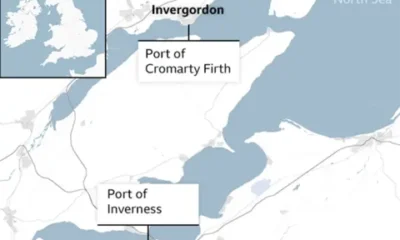Opinion
Alaska’s Fat Bear Week is more than a bit of fun – for the animals, size is a matter of survival

Read more on post.

The most gripping week of the bear calendar has arrived. The Fat Bear Week is an annual online competition hosted by Katmai National Park and Preserve in Alaska. This event, which began in 2014 as a one-day celebration, has since grown into a phenomenon among bear enthusiasts worldwide.
Bears are paired in single elimination match ups where people can read their biographies, look at their pictures and vote based on which bear “exemplifies fatness and success”, so it is not all about their size, but also about their life histories.
Why are we celebrating bear chubbiness? Because for brown bears, getting fat is a
matter of survival. In just a few short months, they must bulk up to prepare for a long seasonal slumber, when they enter a deep sleep similar to hibernation (called
torpor), stopping all bodily functions, including eating, drinking, and eliminating
waste, while their body temperature, heart rate, and metabolism decrease.
This is especially remarkable when you consider that some Alaskan or Scandinavian bears might spend seven months in their dens. Even more impressive is that, during this period, pregnant female bears give birth, lactate and rear the extremely vulnerable cubs. This is a critical adaptation that allows bears to conserve energy during prolonged periods of harsh weather and food scarcity. So yes, those extra kilos are a badge of honour.
The bear’s bulking period is called hyperphagia, a time when brown bears become
obsessed with finding the fattiest, sweetest, and most protein rich foods. In Europe, they switch their diet in summer to feast on fruits (especially berries), hard mast such as acorns and nuts, and also prey on or scavenge animals. But the true champions of chubbiness are the coastal brown bears of Alaska, with some individuals tipping the scales at an astonishing 650kg – more than twice the weight of their European cousins.
These giants gorge on calorie-dense salmon, targeting the fat-rich roe and
brains, and can devour up to 40 fish a day. That’s a jaw dropping intake of 20,000 to over 100,000 calories daily. The result: coastal Alaskan brown bears can gain more than 2 kg per day.
But Fat Bear Week is not just about size. Voters (about 1.2 million in 2024) are encouraged to dive into the life histories of the contenders. Their biographies reflect the harshness of the environment and the fierce competition for resources and mating success. These bears’ lives tell us stories of loss, grave injuries, and also of determination, adaptability, and perseverance.
A matter of life and death
Female bears face enormous challenges: if they fail to accumulate enough body fat, they risk losing entire litters due to the energetic demands of cub rearing. Cubs are also vulnerable to attacks from other bears, particularly males, who may kill infants to eliminate competition and shorten the mother’s time to her next estrus cycle, increasing their own chances of fathering future offspring. Male brown bears don’t have it easier.
They suffer injuries or even death when fighting rivals over food, territory or mates, and must constantly adapt as they grow larger, older, and face tougher competition. In this contest, voters may find themselves rooting for an older female raising her cubs against the odds, or an older underdog bear facing off against younger, stronger challengers.
Beyond the fun of this online competition, Fat Bear Week helps raise
conservation awareness, support habitat protection, and foster public engagement
with wildlife. But the future of bear fattening and hibernation patterns might be
shaped by climate change.
Shifts in seasonal timings mean that their key food resources, such as berries and salmon, now overlap, and some bears may switch their diets. This can disrupt ecosystems and potentially lead to nutritional imbalances and behavioural changes. In Spain’s Cantabrian Mountains, warmer winters have led to brown bears remaining active during the winter, a risky time when food is scarce and cubs are vulnerable.
Conversely, some bears can be displaced to lower-quality areas, causing others that currently eat salmon to enter dens earlier and remain inside longer, missing out on critical feeding opportunities.
Fat Bear Week draws attention to the importance of preserving wild habitats like
Katmai National Park. It’s a brilliant model of how storytelling and digital media can inspire public stewardship of nature.
Opinion
John McManus: Why am I paying my bin company so I can do its work?

Read more on post.
If you are a less than diligent customer of a certain bin company, you probably receive regular emails with links to photographs of your rubbish being emptied into the back of a their truck.
Your various sins against recycling are pointed out to you in a polite but disapproving tone.
You might get mildly annoyed over these emails on the basis that when you signed up as a customer of this company many years ago, you did not have to separate your glass or wash your yoghurt pots. Yet your bill has just gone up again.
And if you were approaching the grumpy old man period of your time on Earth, you could even find yourself wondering whether these changes are really for the benefit of the planet or the bin company. Work that the bin company used to do is now being transferred on to your shoulders, yet your bin charges have not gone down.
You might decide then and there to change bin company and ring up all its competitors – it won’t take long as there aren’t many – to find they charge pretty much the same price for the same service.
There is not much else you can do after that, other than to lie down for a while in a darkened room and listen to recordings of whale songs.
Whatever you do next, make sure you do not read a newspaper report that the Irish Waste Management Association (IWMA), which represents the bin companies, is opposing a proposal to reform the industry because it will damage competition. You will need something stronger than whale songs.
Ireland is unusual insofar as we do not directly regulate waste collection companies. There are plenty of laws bin companies must follow, but there is no single body charged with making sure they play fair and meet their obligations – as is the case with phone companies, energy companies and Uisce Éireann.
This surprisingly laissez-faire approach is attributed to the Government getting its fingers so badly burned in early 2000, when it tried to introduce charges for the bin collection services provided by local authorities. The political fallout rendered it a no-go area and led to the privatisation of collections.
We are also an outlier because we operate what is called a “side-by-side” system whereby bin companies are free to compete (or not compete) with each other to sign up customers anywhere they choose, although they tend to concentrate on certain areas.
Things may be about to change. The Department of the Environment has sought submissions from the public about changing to a system whereby companies will be required to compete for an exclusive fixed-term contract to collect bins in a particular region.
The period for making submissions has closed and consultants are due to report back in the spring. Don’t hold your breath.
The submissions have not been made public but according to a report in the Irish Independent, subsequently confirmed by a representative for the IWMA, the industry is against the proposal, arguing it would be bad for consumers because it will reduce competition. “It is inevitable that any change would result in increased costs on households already hit by cost-of-living increases,” the IWMA told the paper, presumably with a straight face.
It is not every day that you get businesses arguing against the chance to have a monopoly – albeit a regulated one. If anything, it should start the economic alarm bells ringing. But the bin collection business is not a typical business. Several big mergers in recent years have consolidated the industry to the point that the State competition watchdog has described it as broken.
[ Buy, eat, bin, repeat – we are locked in a never-ending flow of wasteOpens in new window ]
The Competition and Consumer Protection Commission (CCPC) has applied conditions to some of the mergers to lessen the impact on competition, but is firmly of the view that too much power is concentrated among too few players and that the industry needs to be regulated in the same way as other utilities.
A move to a franchise system would amount to the same thing and put enough of a fire break between the Government and the price of getting your bin collected to be politically plausible.
It might have been tempting to take the view that the bin companies’ lack of enthusiasm for change has something to do with the money they are making in the current unregulated free-for-all. It is reassuring to know they actually have the interests of their customers at heart. Second only to the interests of the planet, of course.
Opinion
“America First” Accounting Standards?

Read more on post.
LONDON – When it comes to international accounting standards, US authorities have long resembled Dr. Jekyll and Mr. Hyde. When the ordinary, well-adjusted Dr. Jekyll has been in control, the Securities and Exchange Commission has worked toward a convergence of US and international standards, even speaking optimistically about adopting the latter someday. By contrast, Mr. Hyde, the deranged alter ego, has tended to see international standards as a Trojan horse for undesirable foreign practices that would corrupt America’s “gold-standard” generally accepted accounting principles (GAAP).
Opinion
Answering Trump’s United Nations Challenge

Read more on post.
NEW YORK – America’s retreat from multilateralism, which President Donald Trump proudly emphasized in his speech this week to the United Nations General Assembly, and which is most clearly demonstrated by his administration’s dismantling of the United States Agency for International Development (USAID), has upended the institutions and norms that underpin the UN. Indeed, the viability of the UN Sustainable Development Goals (SDGs) is now in doubt, and calls to fill the gaps, particularly in funding, are growing more urgent.
-
Politics3 days ago
European Parliament snubs Orbán with vote to shield Italian MEP from Hungarian arrest
-
Culture3 weeks ago
Life, loss, fame & family – the IFI Documentary Festival in focus
-
Health4 days ago
EU renews support for WHO’s Universal Health Coverage Partnership
-
Environment6 days ago
Key oceans treaty crosses threshold to come into force
-
Culture2 months ago
Fatal, flashy and indecent – the movies of Adrian Lyne revisited
-
Culture3 days ago
Twilight at 20: the many afterlives of Stephenie Meyer’s vampires
-
Culture1 week ago
Farewell, Sundance – how Robert Redford changed cinema forever
-
Culture3 weeks ago
What is KPop Demon Hunters, and why is everyone talking about it?











































